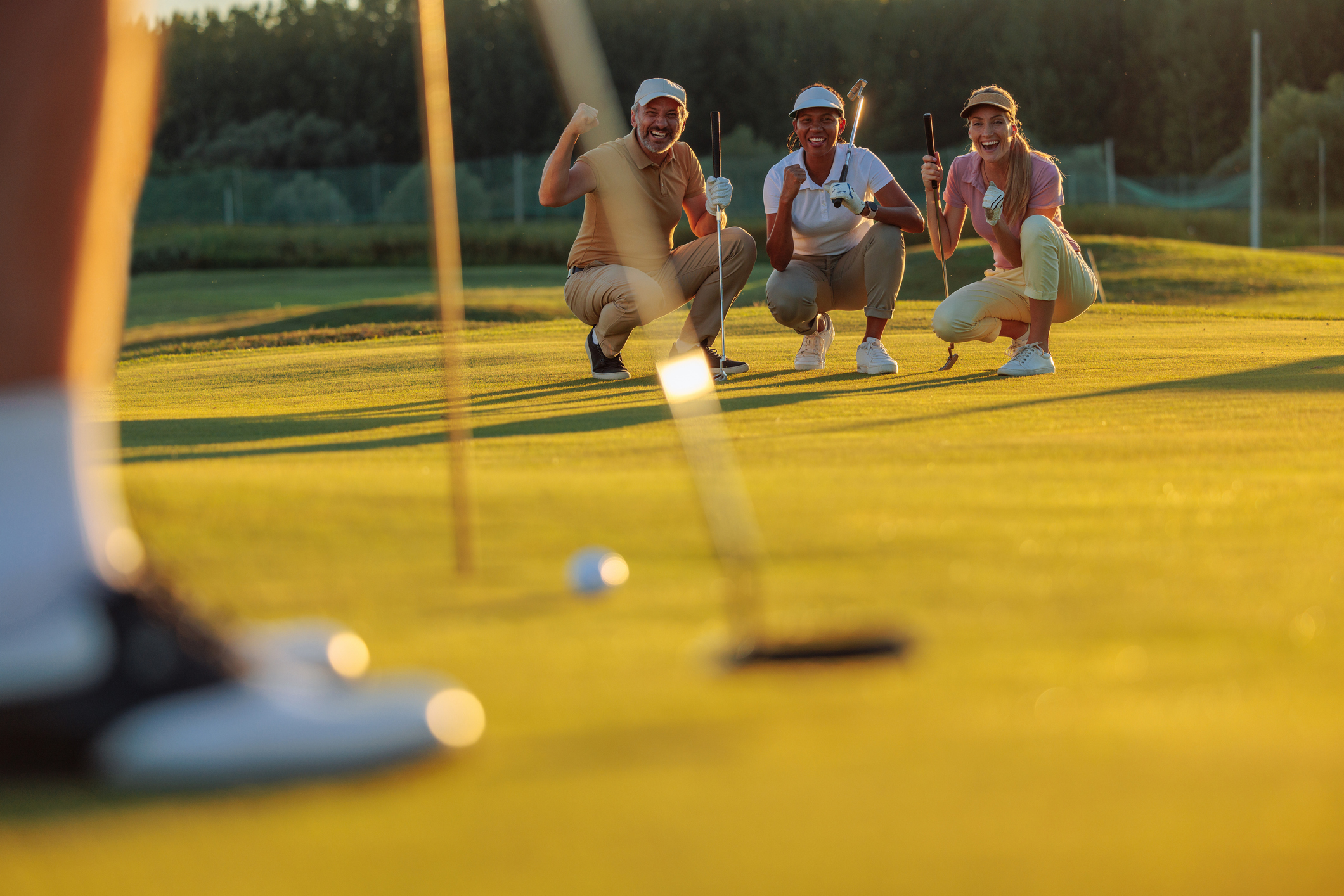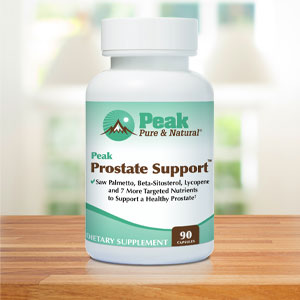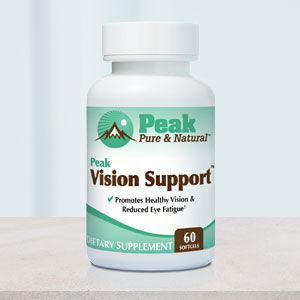Get Easy Health Digest™ in your inbox and don’t miss a thing when you subscribe today. Plus, get the free bonus report, Mother Nature’s Tips, Tricks and Remedies for Cholesterol, Blood Pressure & Blood Sugar as my way of saying welcome to the community!
Why golf is the ultimate social sport for healthy aging

Aging gracefully is about more than just adding years to your life. It’s about enriching those years with health, vitality, and connection!
And what better way to do that than by getting out on the golf course? The sport, often celebrated for its relaxed pace and scenic landscapes, offers a surprising array of physical, mental, and social benefits that make it an ideal activity for healthy aging.
Whether you’re looking for improved cardiovascular health, sharper mental acuity, or stronger social ties, golf can transform how you age.
Let’s have a look at the incredible ways golf supports well-being, proving it’s more than a sport — it’s a pathway to a longer, fuller life.
Physical Health Benefits
One of the biggest factors to aging well is staying physically strong. Losing some muscle mass and strength is inevitable as you get older, but staying active with a low-impact sport like golf can make a huge difference. Here’s what you’ll experience:
Increased Cardiovascular Fitness
You can cover 4 to 6 miles walking an 18-hole golf course! This kind of low-intensity aerobic exercise is amazing for heart health because it lowers your blood pressure and cholesterol, reducing your risk of heart disease as you get older.
Improved Muscle and Joint Health
The golf swing engages various muscle groups, including your core, back, and legs, increasing both muscle strength and endurance. Plus, the low-impact nature of golf is gentle on the joints, making it suitable for older adults who want to maintain mobility without too much strain.
Better Flexibility and Balance
Executing a proper golf swing requires both flexibility and balance. As you get older, the more flexible you are and the better your balance — the lower your chance of falling. Falls are a major cause of mortality in older adults, so this is a huge benefit that’ll save you aches and pains, but could also extend your lifespan.
Prevention of Age-Related Diseases
Regular participation in golf can actually help prevent conditions related to aging, like arthritis, osteoporosis, and diabetes:
- Arthritis: Golf involves low-impact, moderate-intensity physical activity, which helps maintain joint flexibility and strength, potentially reducing arthritis symptoms.
- Osteoporosis: The weight-bearing nature of walking the course and swinging clubs can improve bone density, lowering the risk of osteoporosis.
- Diabetes: The physical activity involved in golf enhances insulin sensitivity and aids in blood sugar control, which is beneficial for preventing and managing type 2 diabetes.
Longevity
Studies indicate that golfers may enjoy a longer lifespan! A Swedish study found that golfers have a 40% lower mortality rate compared to non-golfers, equating to an increased life expectancy of about five years.
Mental Health Advantages
Golf isn’t just about the physical benefits. It’s a thoughtful game that engages your mind as much as your body, so you’ll be getting a regular mental workout as well.
Cognitive Function
Golf requires strategic thinking, problem-solving, and decision-making, all of which stimulate brain health. Regular play enhances memory and concentration, contributing to sustained cognitive function as you age.
Stress Relief
The serene environment of golf courses provides a natural setting that helps reduce stress levels. As we age, it becomes easier to spend more time indoors, so golf is a great way to get outdoors and engage in physical activity at the same time, doubling the positive effects.
Mood Improvement
Moderate physical activity, like walking the course and swinging your golf clubs, releases endorphins, your body’s natural mood enhancers. This leads to improved mood and a sense of well-being.
Enhancing Sleep Quality
Golf involves walking, swinging, and carrying clubs, which are moderate-intensity exercises. Such activities help regulate the body’s sleep-wake cycle, leading to faster sleep onset and improved sleep quality. The combination of physical exertion and exposure to natural light during a round of golf promotes better sleep patterns.
Social Connections
Aging also often leads to isolation, which can accelerate the end of life. Staying in contact with others is hugely important for aging well, and golf can provide that too.
Community Building
Golf clubs serve as social hubs for seniors, giving them a sense of belonging and opportunities to engage with peers. These environments encourage participation in group activities and events, giving older people something to look forward to and many chances to spend time with their golfing friends.
Companionship
Regular play with friends or in groups strengthens social bonds, reducing feelings of isolation. The shared experience of the game promotes camaraderie and mutual support among players. Especially for older people who’ve lost spouses, staying in regular contact with other people is necessary for both mental and physical health.
Golf for All Ages
The sport’s appeal spans generations. This means that it’s a great way to bond with kids, and grandchildren, or spend time with the whole family at once.
Lifestyle Integration
Routine and Structure
Regular golf sessions provide a consistent schedule, which is beneficial for mental health as we age. Establishing routines can enhance cognitive function and emotional well-being. The structured nature of golf, with its rules and etiquette, adds a sense of purpose and discipline.
Outdoor Exposure
Playing golf outdoors exposes people to nature and sunlight, which keeps your Vitamin D levels up. Vitamin D supports bone health and immune function, both important as we age. Also, spending time in green spaces has been linked to reduced stress and improved mood, contributing to overall mental health.
Accessibility and Inclusivity
Golf happens to be a sport that promotes accessibility and inclusivity, making it ideal for healthy aging. Nobody is excluded!
Modifiable Exercise
Golf is a flexible sport. It doesn’t matter if you’re an experienced golfer or if you’re new to the game, it’s a sport you can enjoy.
- Walking the Course: Excellent for those who are still mobile.
- Using a Golf Cart: Reduces physical strain on the course. Alternating between walking and the cart can help you build up strength and endurance.
- Adjusting Play: Players can choose 9 or 18 holes based on their energy levels.
- Using Training Aids: If you’re new to golf, using training aids can help you learn faster.
Continued Education and Skill Development
Learning Curve
Golf’s intricate nature requires players to master various techniques, such as swinging, putting, and course navigation. This complexity offers plenty of continuous learning opportunities, keeping your mind active and engaged.
Skill Improvement
The satisfaction and mental engagement from skill development over time contribute to a sense of accomplishment and purpose. As you improve your golf swing, you experience increased confidence and motivation, which are big parts of maintaining mental sharpness and overall well-being.
Conclusion: Embracing Golf for Healthier Aging
Golf is more than a pastime; it’s a gateway to a healthier, happier, and more connected life as you age. From building physical strength and mental resilience to building meaningful social connections, the game offers surprising yet undeniable benefits for body, mind, and soul.
Whether you’re walking the course, perfecting your swing, or enjoying the camaraderie of fellow players, golf provides the tools to embrace aging with grace and purpose. So grab your clubs and hit the course — it might just be the key to your best years yet.
Editor’s note: Did you know that when you take your body from acid to alkaline you can boost your energy, lose weight, soothe digestion, avoid illness and achieve wellness? Click here to discover The Alkaline Secret to Ultimate Vitality and revive your life today!
















